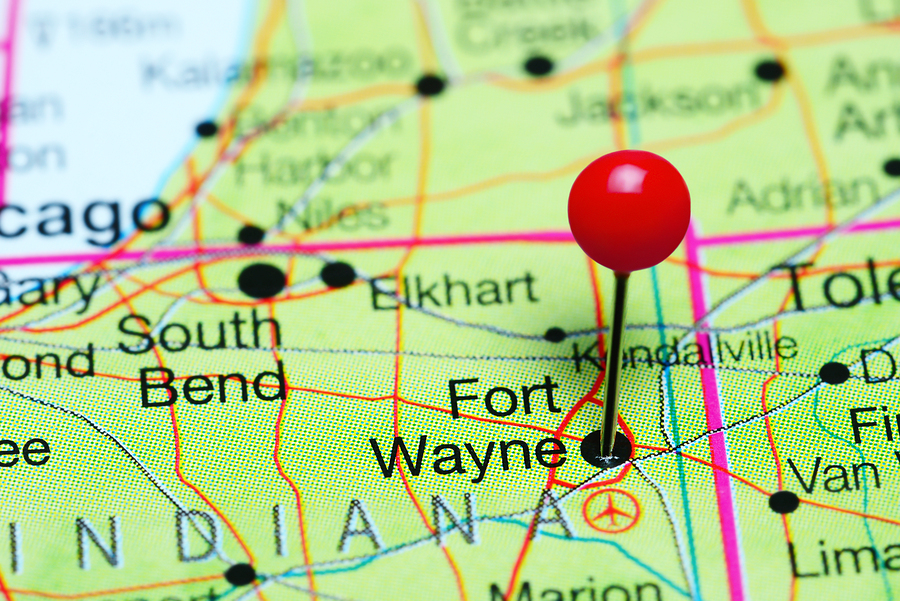
When you think of American cities where the food industry flourishes, a large market like Chicago probably comes to mind. But Eric Doden, CEO of Greater Fort Wayne Inc. (GFW), is on a mission to challenge the idea that the food industry can only thrive in big cities. He wants to provide companies the tools to succeed in smaller markets like his favorite city: Fort Wayne, Indiana.
What many don’t realize is that Fort Wayne is already equipped with indispensable resources for the food industry.
- It has a low cost of doing business and unmatched water treatment plans.
- It’s within 200 miles of seven major markets.
- It provides access to a rich talent pool, including Purdue University graduates.
With the efforts of economic trailblazers like Doden, this midwestern hidden gem won’t stay hidden long. Here’s why.
Food industry + Fort Wayne = perfect match
Fort Wayne is a turnkey city for food companies ready to relocate or start from scratch. The location’s benefits are a perfect match for some of the food industry’s biggest challenges: cost, resources, and talent.
Cost of doing business in Fort Wayne
Indiana is ranked second lowest in the nation for the cost of doing business. That plus the location advantage — Fort Wayne is near major highway systems and airports, as well big cities like Chicago, Detroit, Cleveland, Indianapolis, Columbus, and Cincinnati — means companies still have access to major markets.
Besides the general affordability of the area, the food industry likes how water pretreatment costs are reduced by 20-25% through Fort Wayne City Utilities. Plus, Fort Wayne has 55% more water treatment capacity. That’s huge for an industry dependent on clean water.
Talent pool
GFW is doing its part to attract and retain young talent, especially with their innovation-focused developments. But, there’s already talent closeby. If you check out Fort Wayne on a map, you’ll see there are seven major cities within a 200-mile radius. There are also 15 Tier 1 Universities in the area that produce about 250,000 graduates each year.
For example, Purdue’s main campus is only an hour and a half away. Purdue also has a satellite campus in the city that hosts thousands of students. Having a top-tier university so close gives Fort Wayne the access to some of the best engineering and technology talent in the world as it relates to agriculture and food. “It doesn’t get much better than that in terms of having a phenomenal asset that you can leverage in the business world,” Doden says.
Food already in Fort Wayne
Plenty of companies already call Fort Wayne home. Walmart Dairy put its first milk processing plant in the world right in Allen County. And Edy’s Ice Cream, a Nestlé company, has a factory in Fort Wayne. Smaller companies that have moved in, too, including several packaging companies, a paper straw company, restaurant and foodservice equipment suppliers, and Doden’s favorite, an espresso machine manufacturer called ModBar.
Even with an already thriving food economy, Doden hopes for it to grow and become the place to be for food and beverage startups. “We have a strong food network here. In combination with CookSpring (a restaurant incubator), Electric Works, and Purdue, we think we are going to have world-class incubation and acceleration of the food industry.”
How Fort Wayne is becoming a nationally-recognized economic market
GFW’s plans for Fort Wayne are ambitious, but the biggest project will be major for the food industry: a $410M project called Electric Works. Electric Works is a complete reinvention of the former General Electric factory site in the heart of the city. “We’re trying to create an environment of energy. You’ll see that in the redevelopment of Electric Works,” says Doden.
Between the major redevelopment of a single city block, creating a promenade in the heart of the city, building a center to entertain and educate the next generation, and Electric Works, Doden’s vision is for Fort Wayne to become a nationally recognized economy is getting clearer by the day. “The energy has people wanting to relocate, move, and expand their businesses here. They’re seeing Fort Wayne as one of the best tertiary cities in the area,” Doden says.
Doden’s advice to fellow economic incubators in growing markets
Economic competition between similar markets isn’t a concern to Doden. So when asked what advice Doden would give to economic leaders in similar markets, he replied enthusiastically with two simple words: “Pursue excellence.”
He adds that it’s important to be fiscally responsible, but not to be afraid to take chances that are right for each community. “It’s turning [developments] into economic value-add that moves the needle. Making sure we have the right mentorship and coaching is key. But, I don’t think there’s a simple solution for every community. Every city has their core assets — leverage them and make sure you’re pursuing excellence every step of the way.”
Cities around the country are working hard to attract food businesses. Learn what’s going on in Wisconsin in this article: Cultivating a Food and Beverage Industry Cluster: Advice from the Wisconsin Economic Development Corporation







